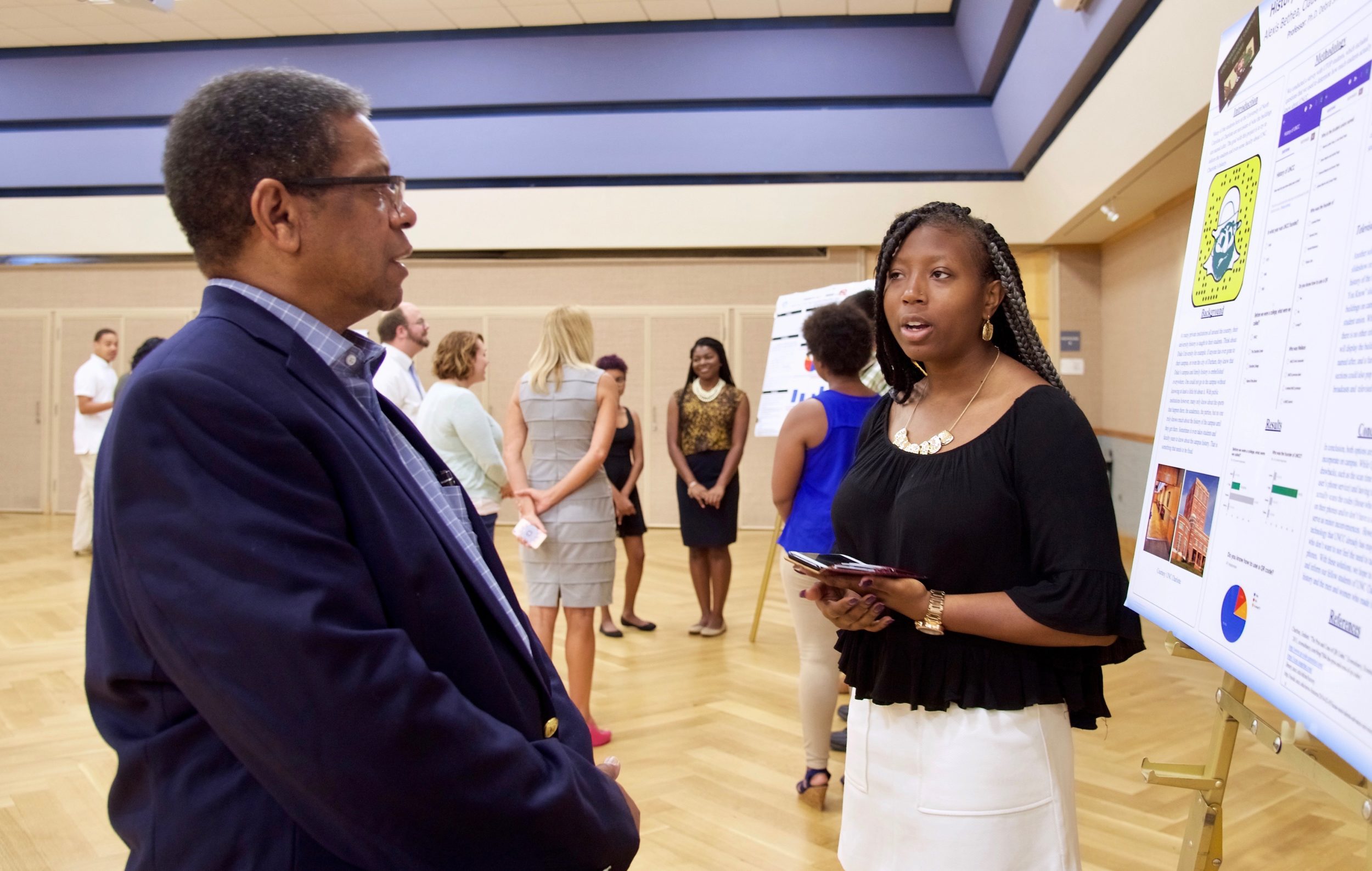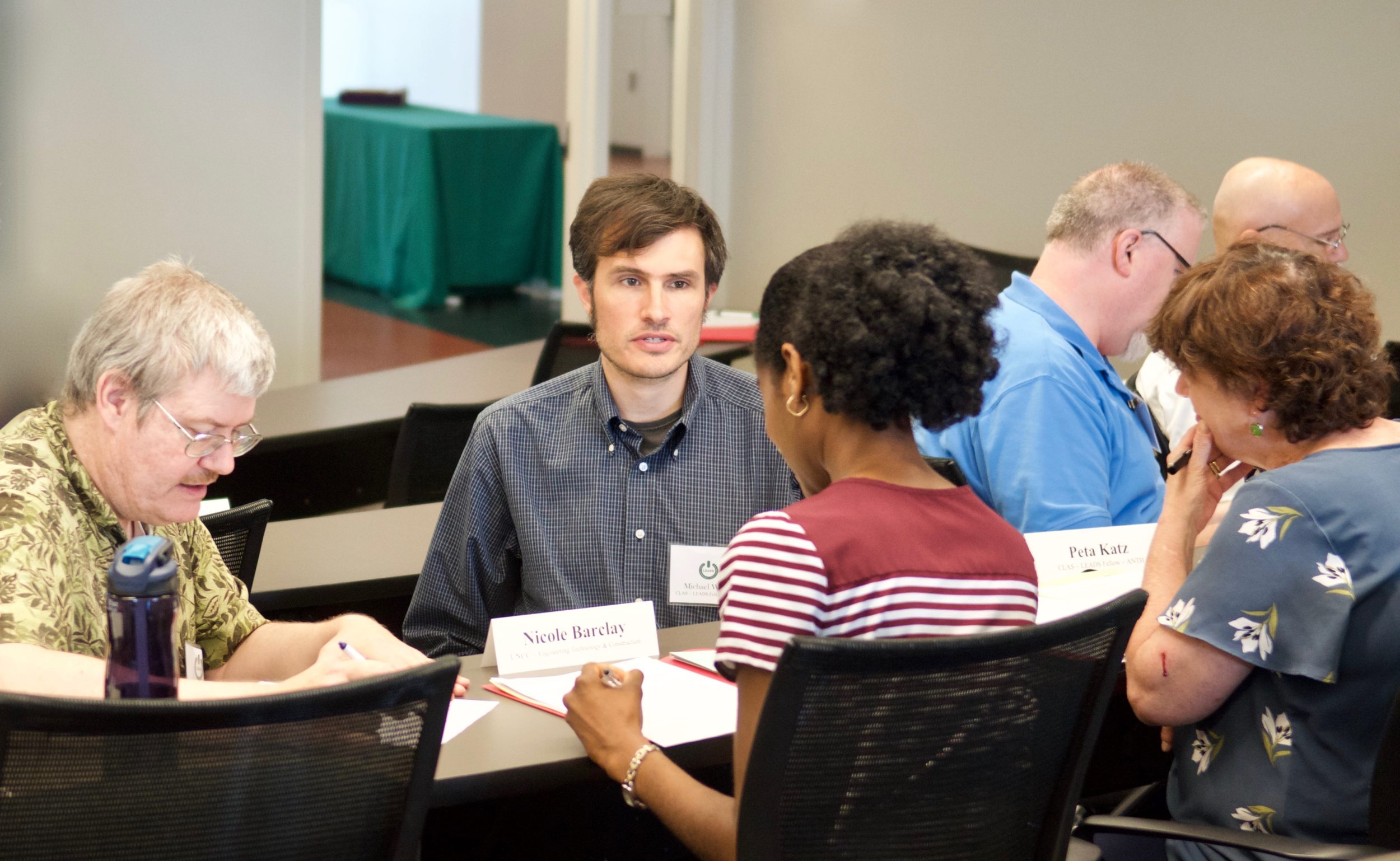As part of the effort to advance experiential learning for students, College of Liberal Arts & Sciences faculty and staff learned best practices during a two-day workshop in June with Worcester Polytechnic Institute facilitators.
“The primary goal of the workshop was to explore how we can integrate project-based learning throughout the curriculum in the College of Liberal Arts & Sciences,” said Shawn Long, CLAS associate dean for academic affairs. “Project-based learning helps students gain professional and social context as they learn to apply their skills and knowledge.”
The workshop was particularly centered on the College’s LEADS initiative, which is focused on helping CLAS students to become leaders and innovators and to be successful with their liberal arts degrees.
Workshop Participants Fully Engage
Charles Morse and Rick Vaz from the Center for Project-Based Learning at WPI led the workshop at UNC Charlotte Center City. In addition to CLAS participants, members of the university Center for Teaching and Learning team and Charlotte Teachers Institute also attended, as did others from throughout the university. “The energy and engagement of those participating in the workshop was contagious, starting with our facilitators from WPI,” Long said.
The on-site workshop built upon the College’s first participation in a WPI seminar last year.
“A team of LEADS fellows was selected last year to participate in an intensive program designed by WPI, in partnership with the Association of American Colleges and Universities,” Long said. “Our team of five faculty and administrators traveled to the Worcester, Massachusetts campus. After the training, these faculty members were able to implement more project-based learning in their own classrooms and also to share what they had learned with others on campus.”

Students from a class taught by Debra Smith apply what they have learned as they present their projects.
The impact and potential was so great that the College invited the WPI team to UNC Charlotte to work with a larger group. The workshop is part of a systemic focus of the College and the University to integrate more project-based and experiential learning into teaching, student research and community engagement. The College’s work is supported by the College, Academic Affairs and the Center for Teaching and Learning.
Project-Based Learning Stands Out
Some differences between project-based learning and problem-based learning include that project-based learning is often multi-disciplinary, while problem-based learning is more often single subject oriented; and project-based learning can extend over time, while problem-based learning tends to be shorter in duration, as described by the WPI facilitators, using Buck Institute for Education as their source.
Also, project-based learning often involves real-world and fully authentic tasks and settings, while problem-based learning more often uses case studies or fictitious scenarios, according to Buck Institute for Education.
Studies continue to show that this type of learning improves student and alumni success. Employers also communicate their desire for employees to possess skills and knowledge that are developed through experiential learning. A Hart Research Associates study in 2015, for example, found that 91 percent of employers agree that the most important college learning outcomes for career success – more than a student’s major – are:
- The ability to communicate orally
- The ability to work effectively with others
- The ability to communicate in writing
- Ethical judgment and decision-making
- Critical thinking and analytical reasoning and
- Ability to apply knowledge and skills to real-world settings
WPI has 48 years of experience with project-based learning, as one of the first universities in the United States to incorporate project-based learning in its undergraduate curriculum.
Words and Images: Lynn Roberson, CLAS Communications Director








